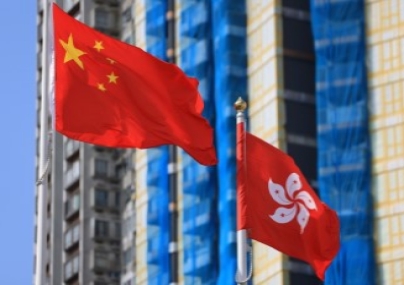
As remote working arrangements reshape office interactions and expectations, law firm leaders are thinking up innovative ways to mentor junior lawyers, thereby ensuring engagement and retention.
HOW CAN FIRMS EFFECTIVELY MENTOR JUNIOR STAFFERS IN REMOTE WORKPLACES?
VINCENT IP, Hong Kong office managing partner, Ropes & Gray
We’ve been working and living through an extraordinary time. The uncertainty of the pandemic and unprecedented client demand for our services, coupled with the physical distance that comes from working remotely, affects us all. With this reality as a backdrop, we’re lucky that prior to the onset of COVID-19 and extended periods of working from home, a culture of mentoring has long been in place at Ropes & Gray. We are a people-oriented business, and hands-on mentorship and training is critical to nurturing junior lawyers’ legal talents. We have also kept our finger on the pulse of our professionals and have adopted a more holistic approach to strengthening a greater sense of community. While working remotely, we’ve strived to keep everyone connected and engaged as part of a community. Given how much time is being spent at home, we’ve rolled out other types of virtual socials. This includes, for example, virtual wine tasting events, as well as opportunities for associates to order lunch at home, and then hop on Zoom to eat together while doing training. While these aren’t mentoring experiences exactly, they are opportunities for associates to connect with their peers in relaxed settings where they can step back from the stresses of a deal. As well as ensuring junior lawyers feel supported in their career development amid a strong culture of achievement, we know that what reinforces these are bonds with colleagues, finding meaning in their work and forging personal connections at the firm.
SHINSUKE YAKURA, leader of the Tokyo office, Orrick
As the leader of Orrick’s Tokyo office, one of my priorities is to cultivate mentoring relationships between junior and experienced team members. Mentoring is a vital way to pass knowledge and culture from one generation to the next. It connects people in a firm, equipping more junior individuals for professional growth and increased effectiveness while strengthening the broader organization. This was true before the pandemic and took on even greater significance in the era of increased remote work. In my opinion, creating new rituals is key to fostering mentoring relationships in the time of COVID-19. These rituals could take the form of a mentor and mentee meeting for coffee or tea when conditions allow face-to-face meetings. It could involve lingering after a virtual meeting to compare notes. Or it could take the form of periodic check-ins – whatever works for the individuals involved. The key is for both sides to make it a habit like any other, to put it on the calendar and commit to it. Doing so can develop the mentee and invigorate the mentor. It can increase engagement, impart a sense of shared purpose, and contribute to increased satisfaction and performance for the individuals involved – and the firm as a whole.
JUSTIN SUN, partner, HFW
Working remotely has had its challenges through the COVID pandemic. One of the biggest challenges of remote work is of course a reduced amount of communication and collaboration – the lack of face-to-face engagement can make things more difficult for junior employees who don’t have such easy access to support and information. We have strived to put activities in place to ensure our high level of engagement across the team has continued while working remotely, so that junior staff feel comfortable to reach out for guidance and help where needed and all staff feel supported.
Some of these activities include:
- Regular catch-up on Microsoft Teams, to ensure that everyone is connected and knows what the priorities are for the day or week;
- Creating a virtual space for groups on Teams, so that everyone can say hello, ask any questions, and initiate meetings;
- Continuing our normal approach of working together on a transaction. I.e. review docu]ments as normal and provide feedback as necessary;
- Encouraging more phone/Teams calls than emails – this is particularly important when working remotely;
- Encouraging senior members of the team to check on junior members regularly;
- Keeping the team spirit alive through non-work-related updates and sending care pack-ages – for example, we recently delivered doughnuts to our teams!
While it hasn’t been easy, and we of course look forward to getting back to the office soon, we have found this approach has been working quite nicely so far.
TIZIANA SUCHARITKUL and DARANI VACHANAVUTTIVONG, managing partners, Tilleke & Gibbins
One lesson that has been emphasized by remote working is that people are social beings and no matter what technology exists to support working remotely, people still crave human interaction, feeling connected and feeling supported, espe-cially during challenging times.
We encourage regular meetings and calls between team members – preferably with video – so they don’t feel isolated. We’ve found that this also helps maintain a level of mutual responsibility and a sense that we are all still in this together, even though we aren’t in the same place. Firm leaders and managers are encouraged to “drop-in” on people by giving them a call to discuss ongoing projects and matters, and to chat socially in much the same way as they would have done in the office. In some cases, that has even allowed them to do so in ways that they wouldn’t have been able to do previously. This is particularly true across our offices. While a lawyer from our Bangkok office might normally get to visit Vietnam once or twice a year, suddenly she was able to meet with her Hanoi colleagues every week and work with them on documents in real-time, in the exact same way as she would with the team in Bangkok. In that sense, it has really flattened the obstacles to cross-office and cross-practice work, and we’re now seeing active mentorship relationships between seniors and juniors in different jurisdictions. Having said that, we still believe that in-person interaction offers so many benefits and fulfils so much of our social needs, and we can’t wait to be fully in the office together again. At such time, given the expe-rience gained from our remote work over the last few years, we will know how to leverage the tools and skills acquired through remote working and combine them effectively with the advantages of in-person working.


